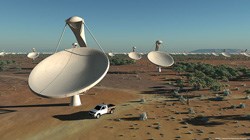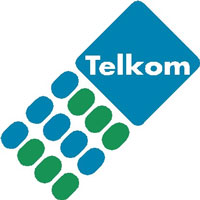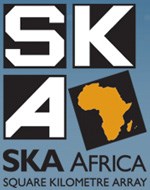
Top stories






More news


Marketing & Media
Ads are coming to AI. Does that really have to be such a bad thing?














It takes three attempts to get hold of Henk van Wyk, president of Agri Northern Cape. "We have a problem with Telkom," he explains. "You would say it's nonexistent."
It is because of cable theft: "Thousands of kilometres of copper wire were stolen and Telkom is not interested in fixing it, it's not economical," he says.
Consequently, many farmers in the province rely on cellphones or radios, the source of tension between local farming community and Square Kilometre Array (SKA) SA.
Cellphones, radios and most telecommunications are the bane of radio telescopes, interfering with distant signals from outer space.
While the SKA site decision is yet to be finalised, the 64-dish precursor - MeerKAT, is definitely happening. It will be the largest radio astronomy telescope in the southern hemisphere until the SKA comes online in 2024.
The government passed the Astronomy Geographic Advantage Act of 2007 to preserve the radio quiet in the area.
Local farmers have argued this would infringe on their ability to stay connected and develop the area, and would worsen urbanisation and depopulation.
"Many farmers lost signal because radio astronomy needs (radio) quiet," Van Wyk says.
A 2009 report by the University of the Free State on the socio- economic conditions of the area says Northern Cape inhabitants are in an invidious position.
"A choice between Telkom and its cellular 'rivals' is a choice between the devil and the deep blue sea. None of these organisations has the first notion of customer service and the contempt with which they treat their platteland client base is truly breathtaking," the report reads.
At the moment, these are the only available options.

The report quotes one farmer, Willem Symington, as saying: "Currently, the telecoms services consist of partial cellphone coverage, outdated Telkom services (manual exchanges) and radio systems. We are battling to cope in this context.... We would like to support the (SKA) project. We realise the huge value of the project for SA. However, this cannot happen at the cost of our social and economic survival."
But Van Wyk says efforts have been made on all sides to find a solution, and as a result, the Northern Cape branch of AgriSA has publicly thrown its weight behind the country's bid to host the world's largest radio telescope.
SKA SA radio frequency interference site characterisation manager Adrian Tiplady says: "We have attempted to engage with the local farming community. Agri Noord Kaap has been very supportive."
There are two issues: the one is telecoms, the other terrestrial broadcasting such as television.

Last month, SKA SA told the Independent Communications Authority of SA that the Northern Cape should be prioritised in SA's migration to digital terrestrial TV, and that analogue communications be switched off by 2015.
MeerKAT will come online in 2016, and will not be affected by digital frequencies.
Government spokesman Jimmy Manyi said last month that the Cabinet had approved full subsidisation of television-owning households in areas of the Northern Cape affected by the SKA.
"The Cabinet expressed sensitivity to poor households who may have already invested in analogue television sets, and particularly those in the Northern Cape whose television signal would otherwise be scrambled by the array project," Manyi said.
Subsidisation also appears to be the way out of the farmer-telecoms impasse.
In a forum to bring all the relevant stakeholders together - the government, SKA SA, MTN and Vodacom, with the recent addition of Telkom - effective communication was raised as one of local inhabitants' main concerns.
One way to circumvent the problems of radio frequency interference and Telkom apathy is satellite phones.
"We would like a full (digital) solution," Dr Tiplady says. "That the Karoo is prioritised for digital migration, the analogue signal is switched off, and the promulgation of satellite receivers as opposed to traditional receivers for households outside of town."
He says there will be subsidies for households that need direct home-to-satellite services.
Van Wyk also sees satellite technology as the way forward, adding that Grintek would be testing its communications satellite in the area in June.
"The Department of Science and Technology and SKA SA have undertaken to improve the technology (available to farmers)," he says.
"No one will be stream-rolled."
Source: Business Day via I-Net Bridge

For more than two decades, I-Net Bridge has been one of South Africa’s preferred electronic providers of innovative solutions, data of the highest calibre, reliable platforms and excellent supporting systems. Our products include workstations, web applications and data feeds packaged with in-depth news and powerful analytical tools empowering clients to make meaningful decisions.
We pride ourselves on our wide variety of in-house skills, encompassing multiple platforms and applications. These skills enable us to not only function as a first class facility, but also design, implement and support all our client needs at a level that confirms I-Net Bridge a leader in its field.
Go to: http://www.inet.co.za